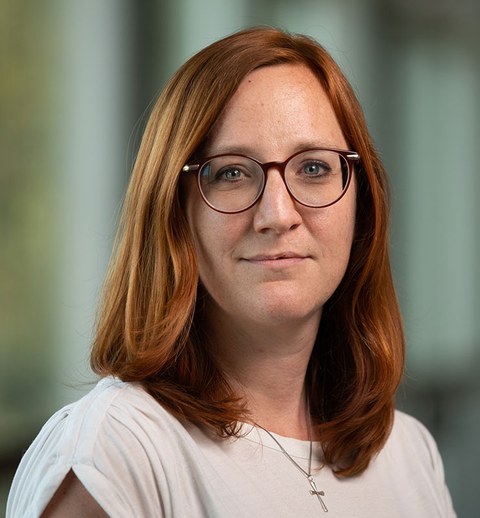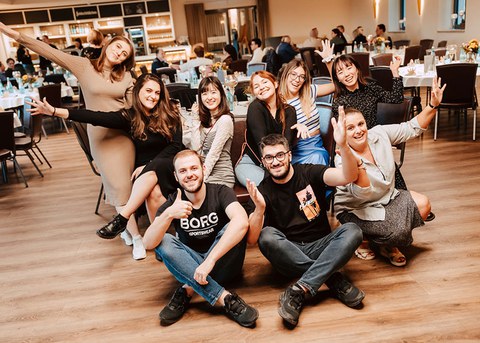Aug 11, 2025
TUD | transCampus - United university excellence
Dagmar Möbius
Dr. Maike Heber has been working as an advisor for a transCampus partnership since 2019. The political scientist, who has extensive experience with internationalization issues, is tasked with further developing this university partnership. Led by Prof. Dr. Stefan Bornstein, the collaboration with King's College London has become a model for other partnerships.
Dr. Heber, what is a transCampus?
It is a strategic partnership between two universities that share common structures such as joint deans and joint programs. Complementary portfolios, competencies and infrastructure are combined. The focus of these partnerships is on excellent research. Furthermore, each transCampus sets its own priorities.
Which specific projects do you think are particularly important, and why?

Dr. Maike Heber is the transCampus consultant.
The core of the transCampus with King's College London consists of the academic networks centered around the International Research Groups, which are international research training groups funded by the DFG. There are currently two: the International Research Training Group (IRTG) 2251 on metabolic disorders and IRTG 2773 on affective mental disorders. Highly productive research groups have formed around these two IRTGs, in which younger academics in particular are active, some of whom are also conducting joint research in Collaborative Research Centers.
The most important upcoming project is the submission of a new proposal, once again in the field of internal medicine. IRTG 2251 is coming to an end and the consortium would like to continue its work with a different focus. The new proposal is to be presented at an internal conference in September 2025. At the same time, a group of researchers from the faculty of psychology is preparing a proposal for a multi-year collaborative research project with the renowned British Wellcome Trust.
There are also other research collaborations, of course. Deserving mention is the collaboration between the CeTI Cluster of Excellence and King's College, which several TUD colleagues are involved in. Several individual research projects are underway, primarily with joint doctoral supervision. Moreover, there is a highly active network in hematology and a multi-year collaborative project in stochastics, which also enables a doctoral student to work at both institutes.
What has been achieved via transCampus to date, and what should alumni know about your work?
We have succeeded in expanding the transCampus partnership to include multiple pillars, and despite Brexit, several leadership changes at both universities, and the conclusion of a number of collaborations, ensure that it remains broad and solidly established. Numerous doctoral students and junior scientists were able to actively participate in international research collaborations through the many funded individual projects and the IRTGs, benefit from the expertise and infrastructural environment of two top universities, and carry out their own projects, which, for example, led to joint publications. Naturally, the acquisition of third-party funding in the multi-year collaborative projects plays a major role for us as a university, and the transCampus was very successful in this respect.
Another major success is that we have been able to transfer the core elements of joint research networks, joint structures and programs to another partnership – the collaboration with IIT Madras.
Personally, I also consider the smaller projects, in which younger researchers in particular establish collaborations, strengthen their own academic profile and forge important and close contacts with colleagues in London, to be a success. I am pleased to be able to help by providing financial support, overcoming administrative hurdles and fostering connections.

Retreat Roadshow, University Hospital
As part of the annual transCampus call for proposals with King's College London, applications for joint projects in 2026 can be submitted until September 30, 2025.
Contact:
Dr. Maike Heber
transCampus adviso
Email:
Website of transcampus
